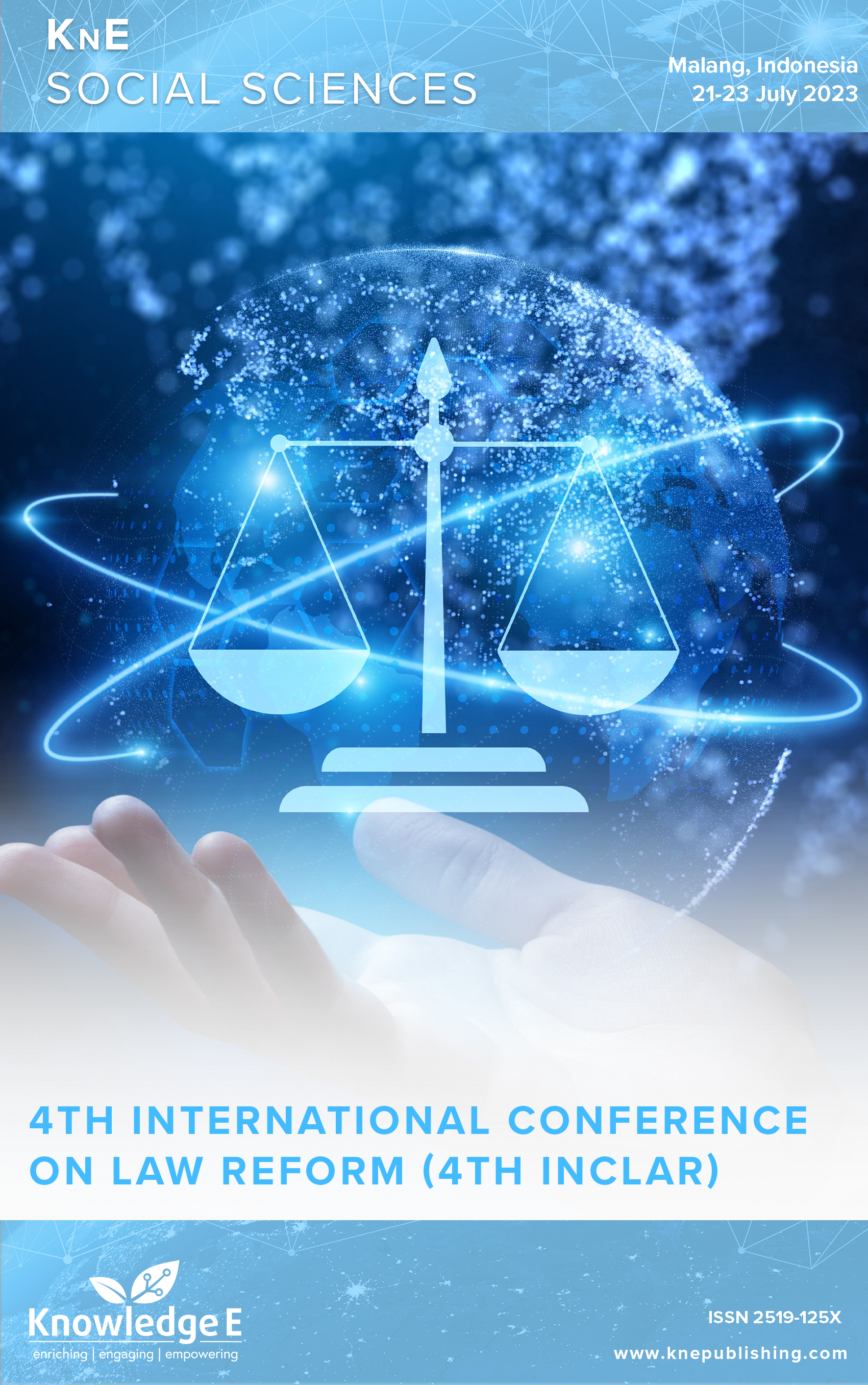Strengthening the Open Proportional Election System after the Constitutional Court Decision Number 114/PUU-XX/2022 from the Perspective of People's Sovereignty
DOI:
https://doi.org/10.18502/kss.v8i21.14778Abstract
The focus of this research is the open proportional election system after the Constitutional Court Decision Number 114/PUU-XX/2022. This study aimed to analyze the legal implications of Constitutional Court Decision Number 114/PUU-XX/2022 from the perspective of people’s sovereignty. Research methods with a normative approach were analyzed in a qualitative descriptive manner. The results showed that the basis for consideration of the decision of the Constitutional Court Number 114/PUU-XX/2022, as the Petitioners’ application is not grounded in law in its entirety. The Constitutional Court rejected the arguments presented considering its ruling, the Constitutional Court used textual interpretation or original intent and systematic interpretation. The Constitutional Court considered the open proportional election system closer to the concept of elections in the 1945 NRI Constitution. The constitution mandates consideration of the Constitutional Court is still very relevant, especially in terms of continuing to apply the open proportional system. The legal implications of the Constitutional Court decisions are legal certainties of election implementation, strengthening the open proportional election system, and increasing. Suggestions to ensure legal certainty, vote laws are not often changed, and changes to an electoral system are adjusted to the dynamics and needs of conducting elections, as well as the real needs of the community as holders of popular sovereignty
Keywords: general elections, electoral system, people’s sovereignty
References
R. Pemilu.org, “Expert witness Charles Simambora, at the hearing of Case Number 114/PUU-XX/2022,” rumahpemilu.org, 2003. .
Assidiqie J. “Political parties and election as instruments of democracy.” J Const. 2006;3:20.
R. Y. K. F. L. Pakaya, “Closed proportional election system in 2024 Election analysis.” J Soc Polit Anal. 2022;1.
“Putusan Mahkamah Konstitusi Republik Indonesia Nomor 114/PUU-XX/2022.” .
Setyawan AH. “The 2024 election will still use an open proportional system.” www.kompas.id, 2023.
Argawati U. “The 2024 electoral system remains proportionally open.” www.mkri.id, 2023.
Pratiwi DA. “Indonesia’s open list proportional electoral system: Giving birth to corruption politics ?” J Trias Polit. 2018;2:18.
M. R. M. M. Nuna, “Freedom of socio-political rights and citizen participation in Indonesia’s democratic system.” J Ius Const. 2019;4:110. DOI: https://doi.org/10.26623/jic.v4i2.1652
Riwanto A. “Correlation of open proportional election system arrangement based on most votes with political corruption in Indonesia.” Yust. J. Huk., vol. Volume 91, p. 101, 2015.
Ali A. Preliminary understanding. Uncovering legal theory & judicial theory including law. Volume I. Jakarta: Kencana Prenada Media Group Jakarta; 2010.
Aditya SR. “5 Reasons MK persists with open election system.” www.viva.co.id, 2023.
Pusparisa YD. “The 2024 election system remains open proportiona.” www.kompas.id, 2023.
Assidiqie J. Freedom of association, dissolution of political parties and the constitutional court. Jakarta: Institusi Press; 2006.
Surbakti RD. Encouraging internal democratization of political parties. Jakarta: Partnership for Governance Reform; 2013.
International IDEA. International IDEA. International electoral standards, guidelines for reviewing the legal framework of elections, International Electoral Standards, Guidelines for Reviewing the Legal Framework of Elections; 2002. p. 11.
Sumali, Echaib S. Legality of the constitutional court as a party and at the same time as a judge in disputes over the authority of state institutions. Indones Law Reform J. 2022 Aug;2(2):142–52. DOI: https://doi.org/10.22219/ilrej.v2i2.22401
K. Fahmi. General elections; people’s sovereignty. Jakarta: PT. Ragagrafindo Persada, 2011.
Rawls J. A theori of justice: Theory of justice, basics for realizing social welfare in the state. Yogyakarta: Pustaka Pelajar Yogyakarta Publisher, 2011.
Kalsen. General Theory of Law and State, VIII. Bandung: Nusa Media Publisher; 2013.

